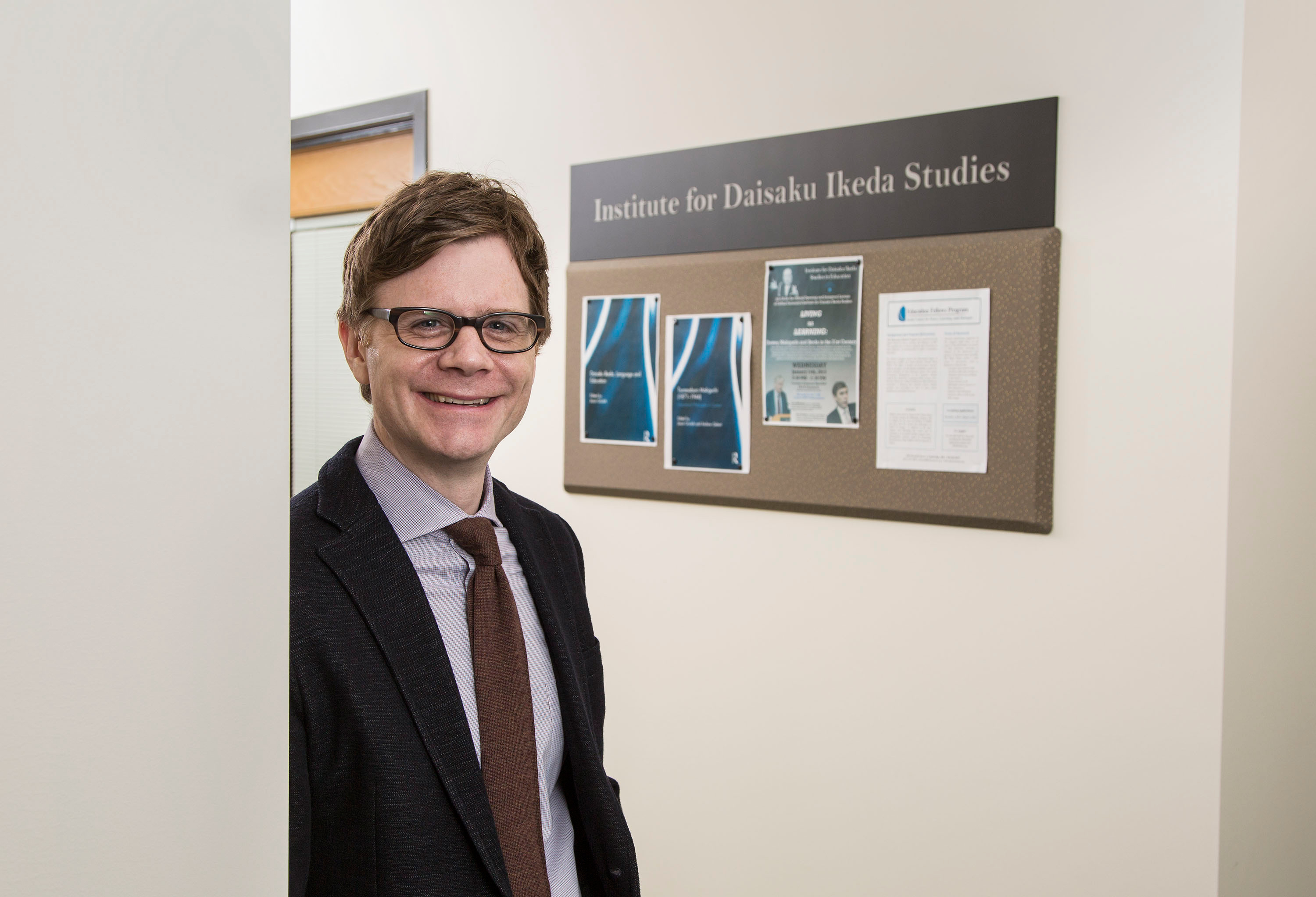
Groundbreaking graduate degree in Ikeda/Soka studies
For the first time, people seeking to study the Soka philosophy of education may do so—in English—through the college’s new online and face-to-face master’s degree on the teachings of renowned Japanese Soka educators Tsunesaburo Makiguchi, Josei Toda, and Daisaku Ikeda.
The Master of Education in Value-Creating Education for Global Citizenship is the only formal program on the Soka method in the world, says Jason Goulah, associate professor and director of the bilingual-bicultural education and world language education programs and director of the college’s Institute for Daisaku Ikeda Studies in Education. “Soka” means “value creation” in Japanese.
Growing out of Makiguchi’s belief that the purpose of education is to help people become genuinely happy and thereby contribute value to the world, the Soka method emphasizes student dignity and unlimited potential and the commitment to never give up on a student. The philosophy is growing in popularity internationally.
“Teachers and leaders around the world are trying to implement these ideas, but there isn’t a place for them to formally study,” says Goulah, who is excited to have the college fill this need. Most of the founders’ writings exist only in Japanese, but that’s about to change.
Goulah has recruited many of the world’s top Soka scholars to teach the courses, and they’ll be translating many materials into English for the first time.
Because the degree is also offered online, Goulah expects a number of international students to register, bringing a global perspective to discussion boards and forums. Students can begin the 12-course program during any quarter. For more information about the degree, visit
Graduate Programs.
Special education degree proves popular with transfer students
As the first graduates of the new bachelor’s degree in special education crossed the commencement stage in June, an enrollment analysis revealed an unexpected trend: Students are transferring from other universities into the College of Education’s program.
Amy Feiker Hollenbeck, associate professor of special education, believes that the extensive experience students receive in the Education and Counseling Center and in the field, coupled with immediate feedback, is creating good word-of-mouth about the degree, which debuted in 2014.
“Students say that they are having much stronger preparation than their peers who are attending other institutions,” she says. “As much as they talk about how rigorous we are and our high expectations, by the end, our students say that there was value to it all.”